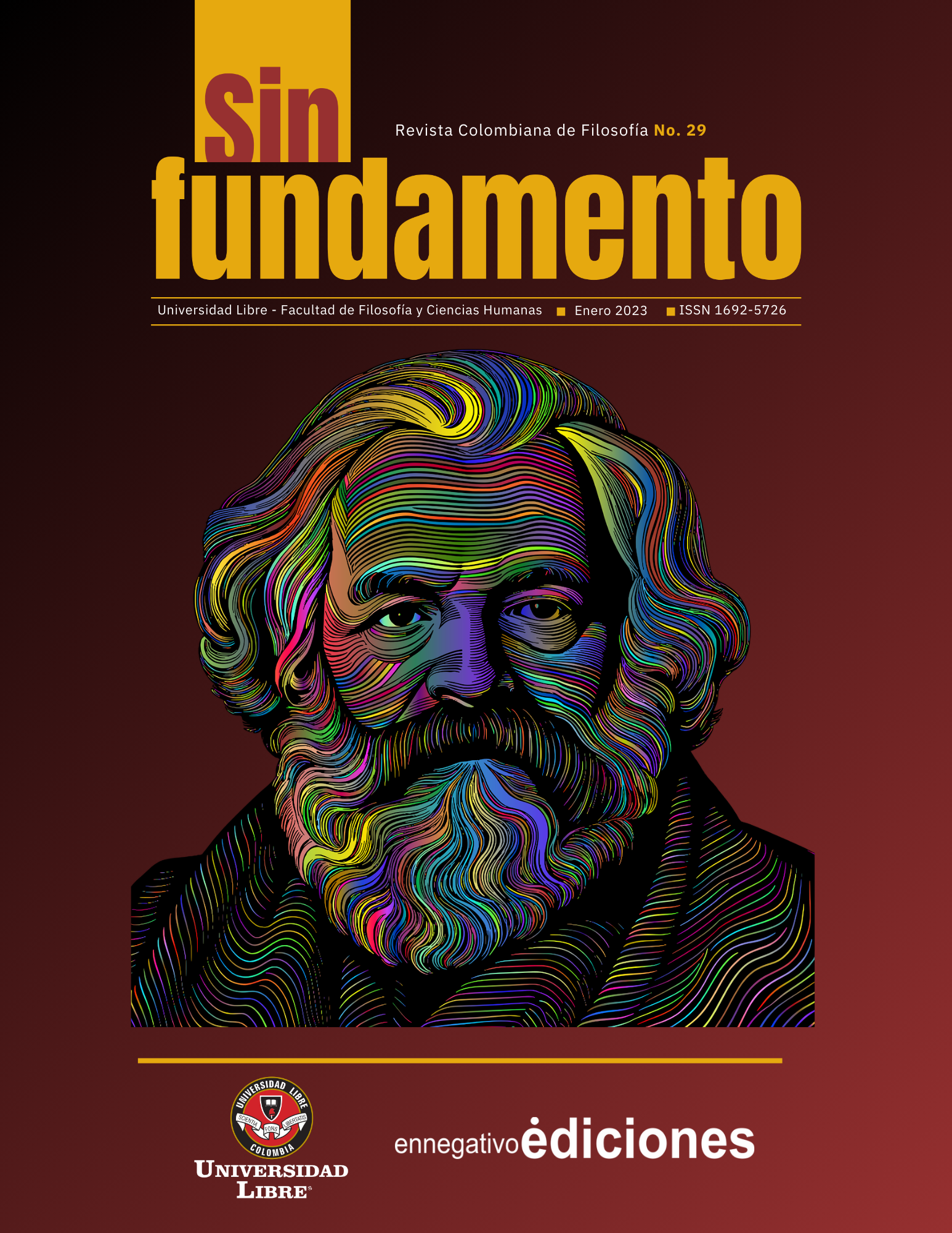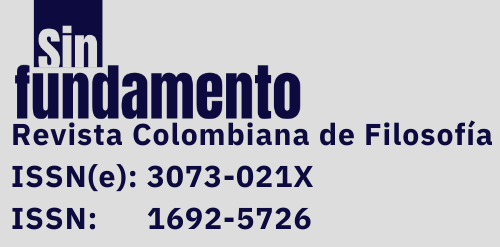Cultura y transformación política en Jesús Martín-Barbero y Fredric Jameson
DOI:
https://doi.org/10.18041/1692-5726/sin_fundamento.29.2023.12404Palabras clave:
Modernidad tardía, cultura, transformación política, totalidadResumen
Este trabajo explora los abordajes en torno a la cultura y la transformación política en las obras de Jesús Martín-Barbero y Fredric Jameson. Ambos autores, desde contextos y perspectivas teóricas diferentes, ofrecen marcos analíticos para comprender las dinámicas de dominación y las luchas sociales en el contexto de la modernidad tardía. En ese orden de ideas, en el presente artículo se examinan sus posturas respecto a la relación entre las dinámicas sociales de lo local y lo global, el papel de los sujetos políticos en el tardocapitalismo y la función de la cultura en los procesos de hegemonía y contrahegemonía. Particularmente, se analiza cómo Martín-Barbero, desde una perspectiva latinoamericana, enfatiza la importancia de las luchas culturales locales y la construcción de identidades populares, mientras que Jameson, desde una perspectiva más global influenciada por su análisis situado en Estados Unidos, examina las dinámicas del capitalismo tardío y su impacto en la cultura. Se presta especial atención a la manera en que ambos autores abordan la concepción marxista de totalidad y las posibilidades de transformación que cada postura permite vislumbrar. Este análisis busca contribuir al debate filosófico y sociológico sobre la relación entre cultura y política, ofreciendo una lecturacomparativa que permite identificar tanto los puntos de convergencia como las tensiones presentes entre los dos teóricos.
Descargas
Referencias
Adorno, T., & Horkheimer, M. (1998). La industria cultural. Ilustración como engaño de masas. En T. Adorno, & M. Horkheimer, Dialéctica de la Ilustración (págs. 165-212). Valladolid: Trotta
Gadea, W. (2011). Repensar la experiencia democrática desde Latinoamérica: la concepción de la democracia radical en la obra de Ernesto Laclau. Revista Internacional de Filosofía, 95-110.
Gramsci, A. (1999). Cuadernos de la cárcel (Vol. V). Ciudad de México: Era.
Jameson, F. (2002). El giro cultural; escritos seleccionados sobre el posmodernismo 1983-1998. Buenos Aires: Manantial.
Jameson, F. (2004). Una modernidad singular. Ensayo sobre la ontología del presente. Buenos Aires: Gedisa.
Jameson, F. (2010). Reflexiones sobre la postmodernidad; una conversación de David Sánchez Usanos con Fredric Jameson. (D. S. Usanos, Ed.) Madrid: Abada.
Jameson, F. (2012). Posmodernismo; la lógica cultural del capitalismo avanzado (Vol. I). Buenos Aires: La marca editora.
Jameson, F. (2013). Posmodernismo; la lógica cultural del capitalismo avanzado (Vol. II). Buenos Aires: La marca editora.
Jameson, F. (2015). Posmodernismo; la lógica cultural del capitalismo avanzado (Vol. III). Bueno Aires: La marca editora.
Laclau, E., & Mouffe, C. (1987). Hegemonía y radicalización de la democracia. En E.
Laclau, & C. Mouffe, Hegemonía y estrategia socialista (págs. 245-318). Madrid: Siglo XXI.
Lukács, G. (2008). Historia y conciencia de clase. Santiago de Chile: Quimantú.
Martín-Barbero, J. (1991). De los medios a las mediaciones. Comunicación, cultura y hegemonía. México, D.F.: Editorial Gustavo Gili.
Matallana, A. (Septiembre de 2021). Nelson Rockefeller en el arte latinoamericano; del mecenazgo a la política. Artes & Humanidades, XI(41), 1-13.
Nash, C. (Marzo de 2017). Hans Haacke and data: Infusing the banality of fact with meaning. Artlink, 37, 58-63.
Žižek, S. (2011). En defensa de causas perdidas. Madrid: Akal.
Žižek, S. (2019). Contra la tentación populista. Buenos Aires: Ediciones Godot.
Descargas
Publicado
Número
Sección
Licencia
Derechos de autor 2024 Sin Fundamento

Esta obra está bajo una licencia internacional Creative Commons Atribución-NoComercial-CompartirIgual 4.0.






